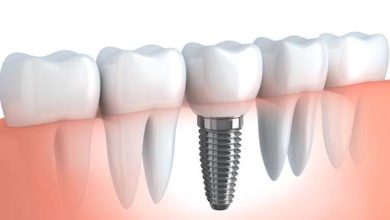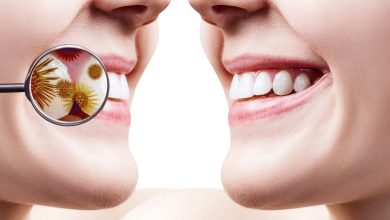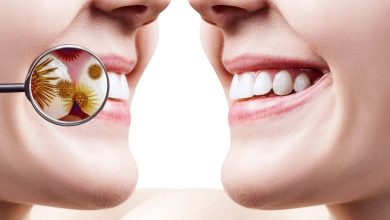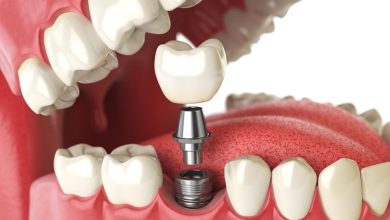Can Breastfeeding Cause Tooth Decay? The Surprising Dental Connection

Breastfeeding can potentially cause tooth decay in infants due to prolonged exposure to sugars from breast milk. Breastfeeding is widely acknowledged as an optimal way to nourish babies, providing numerous health benefits for both mother and child.
However, it is important to be aware of potential risks, such as tooth decay in infants. The natural sugars present in breast milk can lead to the formation of bacteria in the mouth, which in turn may contribute to the development of tooth decay.
While breastfeeding itself does not directly cause tooth decay, prolonged exposure to breast milk can create an environment conducive to dental issues. It is crucial for parents to practice good oral hygiene for their infants from an early age by gently wiping gums with a damp cloth and gradually introducing a toothbrush as the baby grows.
Understanding The Relationship
Tooth decay occurs when the acids produced by oral bacteria dissolve the tooth enamel, leading to cavities. While breastfeeding is generally beneficial for babies’ overall health, it can contribute to tooth decay in certain situations.
When a baby is breastfed frequently throughout the night, the prolonged exposure to breast milk can increase the risk of tooth decay. This is because breast milk contains natural sugars that can feed the bacteria in the mouth, leading to acid production and enamel erosion.
Bacteria play a crucial role in tooth decay. These bacteria break down the sugars in breast milk into acids, which attack the tooth enamel. Frequent breastfeeding, especially at night, can create an ideal environment for bacteria to thrive and cause tooth decay.
It’s important to note that proper oral hygiene practices, such as cleaning the baby’s gums with a soft cloth and eventually introducing a toothbrush, can help prevent tooth decay. Regular dental check-ups for both mother and baby are also essential to detect any signs of decay early on.
Breastfeeding And Infant Oral Health
Breastfeeding offers numerous benefits for a baby’s overall health, including oral health. Breast milk is rich in antibodies and essential nutrients that support the development and growth of a baby’s mouth. It helps to prevent infections and reduce the risk of tooth decay.
Breast milk contains lactose, a natural sugar that acts as a prebiotic, promoting the growth of beneficial bacteria in the baby’s mouth. This helps to maintain a healthy balance of oral flora and reduces the growth of harmful bacteria that can lead to cavities.
The frequency of feedings also plays a role in dental health. On-demand breastfeeding throughout the day and night may increase the exposure of tooth surfaces to breast milk, potentially increasing the risk of tooth decay. However, nighttime feedings are considered crucial for infants as breast milk at night contains factors that protect against cavities. Striking a balance is recommended.
In summary, breastfeeding provides several benefits for oral health, including the transmission of protective factors, prebiotic effects, and the prevention of infections. However, it’s essential to practice good oral hygiene and be mindful of the frequency of feedings to prevent the risk of tooth decay.
Preventive Measures And Best Practices
When breastfeeding infants, it is important to be aware of the potential risk of tooth decay. However, by adopting preventive measures and best practices, parents can ensure good oral health for their little ones. Effective oral hygiene practices for breastfeeding infants include wiping their gums with a clean, damp cloth after each feeding and introducing a soft-bristled toothbrush for gentle cleaning when teeth start to emerge.
As infants transition to solid foods, parents should pay attention to their dental health. Avoiding sugary and starchy foods, and instead providing a variety of nutritious options, can help minimize the risk of tooth decay. Additionally, nurturing good oral habits during breastfeeding, such as avoiding allowing the baby to fall asleep with a bottle or breastfeeding, can contribute to healthy teeth and gums.
Regular dental visits are crucial for monitoring and preventive care. It is recommended to schedule the first dental visit by the age of one or within six months after the first tooth appears. Dentists can offer valuable guidance on oral hygiene techniques specific to breastfeeding infants, as well as identify any potential issues early on.
By implementing these preventive measures and best practices, parents can ensure their breastfeeding infants maintain good oral health and prevent tooth decay.
:max_bytes(150000):strip_icc()/190731-truth-about-cavities-cceeb4a59a5f4ed291bf8019b2e6a936.jpg)
Credit: www.parents.com
Frequently Asked Questions On Can Breastfeeding Cause Tooth Decay?
Can Breastfeeding Cause Tooth Decay In Mom?
Breastfeeding does not cause tooth decay in moms.
Does Breastfeeding Affect Dental Health?
Breastfeeding doesn’t directly impact dental health. However, prolonged breastfeeding or inadequate oral hygiene can cause tooth decay. It’s important to clean your baby’s gums and teeth gently after feeding to maintain good oral health.
What Is Nursing Tooth Decay?
Nursing tooth decay is a condition caused by prolonged breastfeeding or bottle-feeding, which can lead to tooth decay in babies. It occurs when the baby’s teeth are frequently exposed to sugary substances, such as milk, formula, or juice. Proper oral hygiene and early dental care can help prevent nursing tooth decay.
What Are The Side Effects Of Breastfeeding For A Mother?
Breastfeeding can cause mild discomfort like sore nipples, engorgement, or mastitis. However, these can be managed with proper care and support. It can also lead to weight loss, reduced risk of certain cancers, and a stronger bond with the baby.
Adequate hydration and nutrition are necessary for the mother.
Conclusion
To summarize, breastfeeding does not directly cause tooth decay. While it is true that breast milk contains natural sugars, proper oral hygiene and regular dental care can help prevent any potential tooth decay. It is important for breastfeeding mothers to maintain a balanced diet and take care of their own dental health to ensure the well-being of both themselves and their baby.
Breastfeeding remains a valuable and beneficial source of nutrition and bonding for mothers and infants alike.





